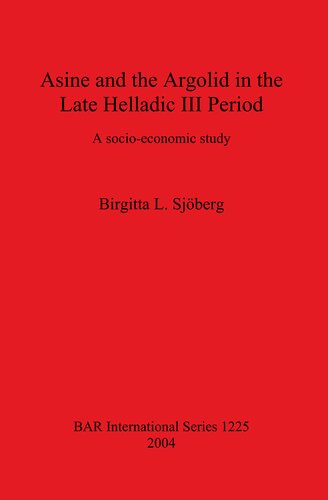

Most ebook files are in PDF format, so you can easily read them using various software such as Foxit Reader or directly on the Google Chrome browser.
Some ebook files are released by publishers in other formats such as .awz, .mobi, .epub, .fb2, etc. You may need to install specific software to read these formats on mobile/PC, such as Calibre.
Please read the tutorial at this link: https://ebookbell.com/faq
We offer FREE conversion to the popular formats you request; however, this may take some time. Therefore, right after payment, please email us, and we will try to provide the service as quickly as possible.
For some exceptional file formats or broken links (if any), please refrain from opening any disputes. Instead, email us first, and we will try to assist within a maximum of 6 hours.
EbookBell Team

5.0
78 reviewsMycenaean society, it is commonly asserted, was characterised by centralised decision making over an integrated and culturally homogeneous region. In matters political and economic, the local rulers held sway over a population subject to taxes in kind and corvée labour. Beyond his obligations to the Palace, the Late Helladic inhabitant of the area commanded little by way of resources to engage in anything but subsistence activities. Such is the power of this long-prevailing view that, until recently, few scholars thought of questioning the logic and implications of the various concepts and models based on it. At its most simple, the argument revolves around the issue of whether Mycenaean society was strongly centralised with redistributive traits or whether the power and homogenising influence of the power base, if any, was not strong enough to touch the furthest corners of everyday, subsistence-level life. If the latter view has anything to commend it, this will have far-reaching ramifications for our perception of the nature of life and society in the Mycenaean Argolid. If, on the other hand, the long-held view can be proved to be correct, researchers will be on much firmer ground with respect to the inferences that may legitimately be drawn. In this monograph, the author addresses these issues by evaluating the conceptual and theoretical foundation upon which the now predominant view is based, as well as the claims made with respect to the nature and character of the economic system of Late Helladic society in the Argolid. Furthermore, the present study also sets out to analyse in more detail the role of Asine, a mid-tier settlement in the Argolid, with a view to establishing the vertical and horizontal linkages that this settlement may have had with the surrounding communities.